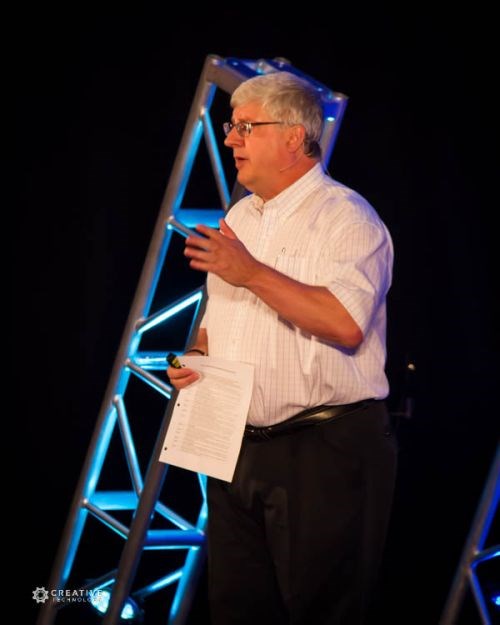Driving Innovation from the Bottom Up
Those closest to a process are best-equipped to improve it.

Author Alan G. Robinson gives a presentation at the ABMA’s annual convention. (Photo courtesy of Creative Technology Corp.).
Front-line workers see a great many problems and opportunities that their managers don’t. Organizations that are set up to listen to—and act upon—large numbers of these ideas are best equipped to create a sustainable competitive advantage.
That was the primary message behind award-winning author Alan Robinson’s presentation at the American Mold Builders Association (AMBA) annual conference in Milwaukee May 14-16. And, Robinson had plenty of concrete evidence to back his claims. After all, the book in which he and co-author Dean M. Schroeder originally outlined this premise, Ideas are Free, is based on a global study of more than 150 organizations in 17 countries.
Consider the experience of the Clarion Hotel in Stockholm, Sweden. Managers crunching numbers had no idea that the hotel would sell more beer if the bar only had an extra tap. At the suggestion of bartenders, the hotel has since added one. Another development based on a report from bar staff is the addition of three chutes that lead directly to recycling bins in the basement. This eliminates the time suck of sorting and transporting recycling material. That’s something upper management might never have understood without input from front-line employees—and, given that it depends on the layout of that particular hotel, it’s something competitors can’t duplicate.
The Clarion is just one of many organizations Robinson mentioned that has managed to implement a culture in which employees are encouraged to problem solve and implement new ideas on a daily basis. It doesn’t take a great leap of logic to see how this basic premise might apply to a mold shop. “Implementing a culture,” of course, can’t be done overnight—but it can certainly be done. In fact, we’ve already covered one example. Ray Coombs, president of 2014 Leadtime Leader award winner Westminster Tool, credits Ideas are Free for changing the very DNA of his organization. Read this article to learn more (this particular aspect of the shop’s approach is detailed under the subhead “A Cultural Shift”).
Meanwhile, Robinson recently released a follow-up to that book: The Idea-Driven Organization. He also runs a blog with extensive detail on various aspects of the “idea” culture, as well as tips on how to implement it in your own organization.
Related Content
-
Making Mentoring Work | MMT Chat Part 2
Three of the TK Mold and Engineering team in Romeo, Michigan join me for Part 2 of this MMT Chat on mentorship by sharing how the AMBA’s Meet a Mentor Program works, lessons learned (and applied) and the way your shop can join this effort.
-
MMT Chats: 5 in 5 with Best Tool and Engineering
MoldMaking Technology Editorial Director Christina Fuges reveals 5 best practices for improving efficiencies within shops...in 5 minutes. Our guest is Joe Cherluck, President of Best Tool and Engineering in Clinton Township, Michigan.
-
Dynamic Tool Corporation – Creating the Team to Move Moldmaking Into the Future
For 40+ years, Dynamic Tool Corp. has offered precision tooling, emphasizing education, mentoring and innovation. The company is committed to excellence, integrity, safety and customer service, as well as inspiring growth and quality in manufacturing.
















.jpg;maxWidth=970;quality=90)